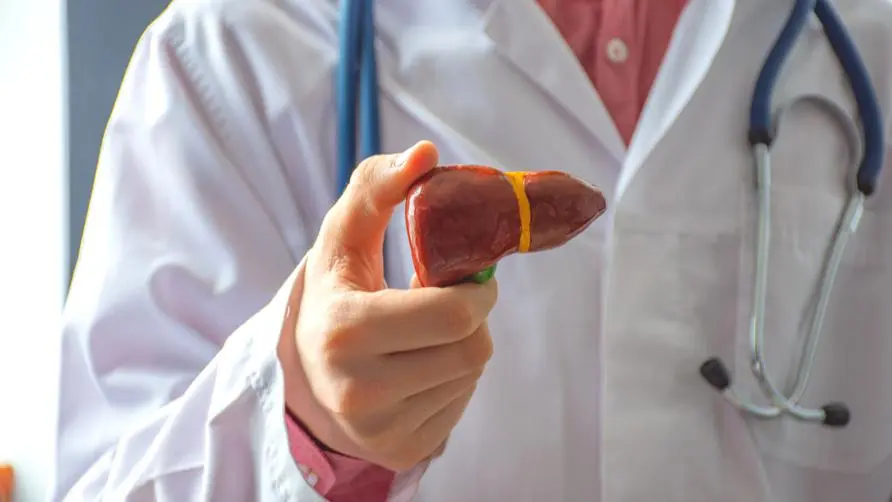If liver cancer cannot be cured, is it likely to keep recurring like "popcorn"? Seventy-year-old man bravely fights cancer for 20 years and still has a grandchild

According to statistics from the Taiwan Ministry of Health and Welfare, Health Promotion Administration, approximately 13,000 people die from chronic liver disease, cirrhosis and liver cancer every year. It is understood that about 70% of patients who die from liver cancer are hepatitis B carriers and 20% are hepatitis C infections. If hepatitis B carriers continue to attack, 15-20% will develop cirrhosis, significantly increasing the incidence of liver cancer.
Taiwan Health Promotion Administration also pointed out that after surgical resection of liver cancer, about half of patients will relapse within 5 years. Past studies have found that the postoperative recurrence rate of patients with liver cancer related to hepatitis B is positively correlated with the amount of hepatitis B virus in the blood. The higher the number of viruses, the greater the chance of liver cancer recurrence after surgery. Therefore, how to reduce the recurrence rate of liver cancer after surgery is an important clinical issue.
Is liver cancer afraid of recurring like “popcorn”? He underwent 5 radiotherapy and 7 embolizations and finally succeeded in fighting cancer.
Dr. Xu Wei-chung, director of the Radiation Oncology Department of the Cheng Ching Hospital Chung Kang Branch, said that there was once a 75-year-old liver cancer patient. Over the past 20 years, liver cancer has been like “popcorn”, relapsing after a period of time. The recurrence of liver cancer is difficult to predict, but there are many methods to treat liver cancer. The most important thing is to maintain the patient’s liver function. After proper treatment, the patient has now been promoted to grandfather and can maintain a normal life.
After the patient was diagnosed with liver cancer 20 years ago, he immediately underwent surgery to remove part of his liver lobes, thinking that he would be fine. Unexpectedly, another liver tumor was discovered 3 years later. After precise elimination with radiotherapy, it recurred again within 5 years. The patient underwent a total of 5 radiotherapy and 7 embolization treatments before and after.
Dr. Xu Wei, a traditional Chinese medicine doctor, said that liver cancer is sometimes very difficult to deal with. It depends on the patient’s individual constitution and sometimes it is easy to relapse. The patient has been relapsing continuously over the past 20 years, just like “popcorn”, which “pops” every few years, either single or several, and the course of the disease is quite unpredictable. The current approach is to hunt down cancer as soon as it sees traces of cancer. However, long-term cancer killing of the liver may damage liver function and even lead to liver failure. Eventually, the patient cannot continue to receive treatment and ends his life.
Liver function may “get worse” after multiple embolizations. Doctor: Only “tailor-made” cancer elimination makes sense!
Dr. Xu Wei emphasized that for patients with recurrent liver cancer, it is important to use different treatment methods to protect the patient’s liver function and reduce damage to the liver. Only by “tailor-made” elimination of tumors is it meaningful. In the past, patients who underwent multiple embolization treatments may have experienced a deterioration in their liver function. Therefore, the use of electrocautery or radiation therapy to accurately target specific areas of the tumor can effectively protect normal liver function.
In addition, every time the liver cancer recurred in the above-mentioned patients, there was almost no abnormality in the tumor index (fetoprotein). Dr. Xu Wei, a Chinese medicine doctor, said that about 30% to 40% of liver cancer patients will not show up on the tumor index, and imaging examinations must be used to determine whether they have liver cancer. Since this patient has suffered from hepatitis B since he was young, he is already in a high-risk group for liver cancer and should go to the hospital regularly for follow-up examinations.
Dr. Xu Wei, a Chinese medicine doctor, said that this patient with recurrent liver cancer, who was a father at the time and is now a grandfather, has spent 20 years fighting cancer, and his courage is truly admirable. At present, his daily life is normal and he does not need his children to accompany him every time he returns to the clinic. It shows that as long as you follow the doctor’s advice and receive regular treatment, the “liver cancer popcorn” phenomenon will have a chance to be alleviated.
Further reading:





